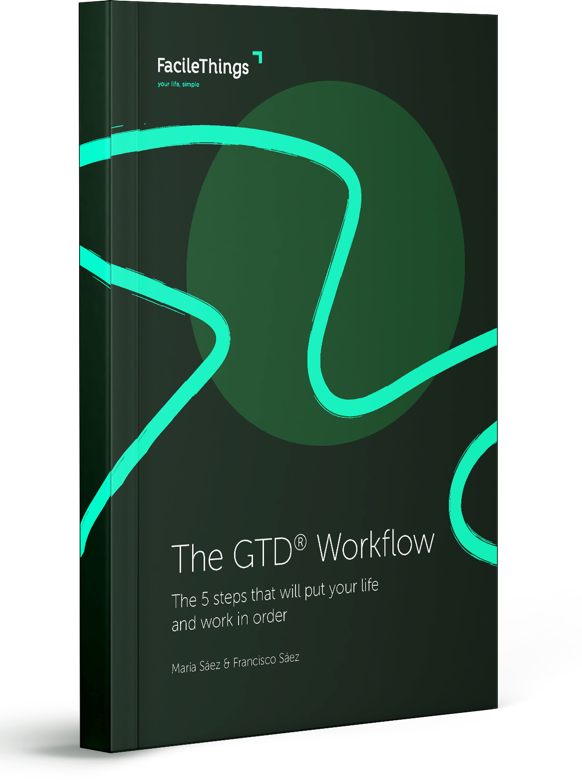Personal Productivity
How to Improve Your Attention Span
AUTHOR: Francisco Sáez"I don't focus on what I'm up against. I focus on my goals and I try to ignore the rest." ~ Venus Williams

It is a reality that nowadays, unconsciously but relentlessly, we do nothing but train our brain to reduce its attention span. Our environment has become a great cacophony full of distractions and it is frankly difficult to ignore all the noise for a long time.
The good news is that, if we are able to train our brain to shorten its attention span, we are also able to train it for the opposite, that is, to have a longer and better attention span. The difference, of course, is that this second form of training requires a significant effort on your part, as it goes in the opposite direction to what your environment imposes on you.
Turn your attention away from what’s distracting you
“The average attention span of the modern human being is about half as long as whatever you’re trying to tell them.” ~ Meg Rosoff
You have probably heard many times about the famous marshmallow experiment 1, in which a group of children between the ages of 4 and 6 were put in a room with no distractions and offered two choices. They could choose between getting a marshmallow immediately or waiting 15 minutes and thus getting a second marshmallow. Very few children were able to wait to get the bigger prize, but it turns out that those who did use a technique which psychologists call strategic attention allocation, that is, diverting attention to another focus to avoid obsessively thinking about the treats (looking elsewhere, humming songs, thinking about other things, etc.).
You can use this technique when you have to do a task that you don’t feel like doing nearly as much as others, or when there is an issue that is bothering you. Put aside distractions and think about the reward you will get if you do what is important first.
Since the attention span works like a muscle and gets exhausted, it is good to use methods that alternate between a time of focus and a time of distraction to reinforce your concentration on what you are doing. For example, deep work can help you concentrate for long periods of time, and the Pomodoro technique for very short periods of time.
Work methodologies such as Getting Things Done allow you to separate the wheat from the chaff and focus on what is truly important.
Train your willpower
“Willpower is the key to success. Successful people strive no matter what they feel by applying their will to overcome apathy, doubt or fear.” ~ Dan Millman
Constant distractions (emails, notifications, Twitter, Facebook, etc.) are testing your willpower all the time. It’s hard to stay focused on something for an hour, but it’s very easy to spend the whole day answering small inputs that don’t require much time on their own.
On the other hand, constantly resisting what you want to do weakens your willpower and makes your performance less than optimal in what you are going to do next, so you have to find a middle ground.
Willpower is a cognitive function that can be trained and, in this, exercise and sports can be very helpful. Training regularly with a goal in mind—in a gym to gain 1 kg of muscle, running to prepare for a marathon or cycling to prepare for a mountain ride—takes time and attention, so it also helps to strengthen your willpower and your ability to concentrate.
Measure your progress
“What gets measured gets managed” ~ Peter Drucker
What gets measured, gets managed and can be improved. Nowadays, smartphones tell you how much time you spend using them and how that time is distributed among the different apps. Observe these data and how they evolve over the weeks; identify which of the resources you use are productive and which are mere distractions. This will allow you to be aware of a reality that you may not be aware of, and take appropriate action if necessary.
For the rest of the time, the time you don’t spend looking at your phone, you can also keep track of what you spend it on manually and easily. Keep in mind that your brain is not good at gauging your productivity. At the end of the day, if you’ve been very busy, you may have a misleading feeling that you’ve been very productive, when you may have been doing a lot of unimportant nonsense.
Create the correct environment
“Art is the elimination of the unnecessary.” ~ Pablo Picasso
Once you know how you waste your time, you have to start eliminating from your life, or at least minimizing, everything that distracts you unnecessarily.
When you are working, turn your phone to silent, deactivate all notifications and close all programs that you do not need for the task at hand. If you need the Internet browser, keep open only the tabs you need for your current task. Disconnect email. Remove from your sight everything that has a number sign notification because, unconsciously, your brain will be willing to click there to see “what you are missing”.
If you find activating and deactivating things too tedious each time, you can create a second user account on your computer that only has the tools you need to work without distractions installed and configured, and use that account when you go to carry out a work session.
If you work from home, make sure you have a comfortable workspace. Eliminate everything that distracts you and does not contribute to your work; keep it clean and tidy, without noise.
Remember that your attention span can be trained, so practice, practice, practice.




No comments